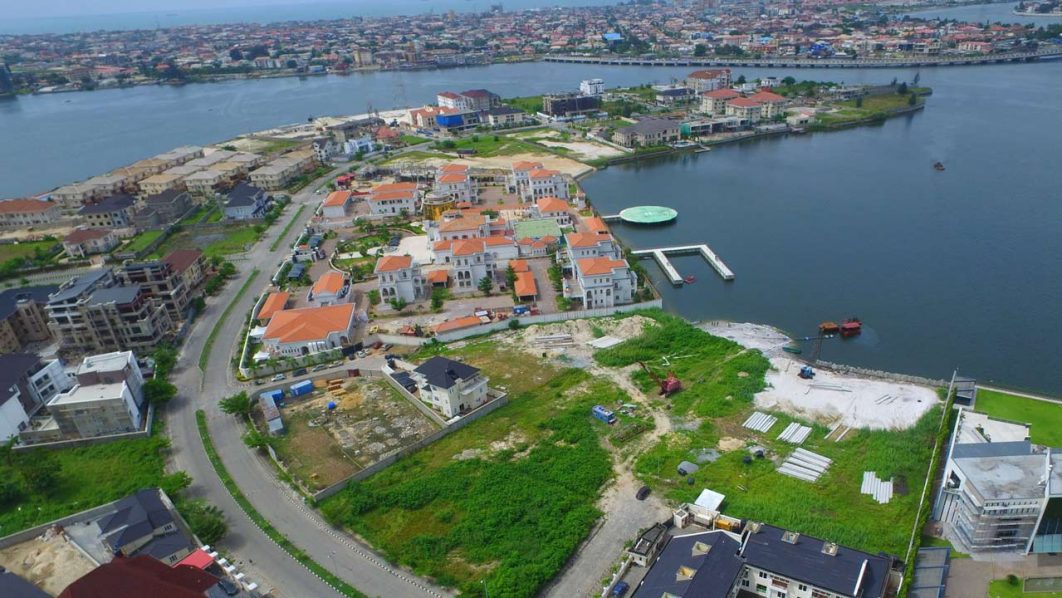Banana Island, the man-made paradise in Lagos, Nigeria, is not your typical island retreat. Nestled in the Ikoyi neighborhood of Lagos, it’s a serene enclave that’s home to some of the nation’s wealthiest individuals and expats. Think of it as Nigeria’s answer to upscale neighborhoods like Paris’s Seventh Arrondissement, San Diego’s La Jolla, New York City’s Tribeca, or Tokyo’s Shibuya and Roppongi.
Completed in 2000, Banana Island has become a billionaire’s paradise, offering a tranquil escape from the bustling city of Lagos. Its unique name is derived from its distinctive shape, and its exclusivity has attracted the country’s elite. Here, we delve into what makes this island so exceptional.
Boundaries
Banana Island is strategically located, just over 5 miles east of Tafawa Balewa Square, Lagos’s commercial and ceremonial heart. A dedicated road connects it to the nearby Parkview Estate. The island encompasses 1.63 million square meters of land, surrounded by Lagos Lagoon.
Price Range
As in the rest of the country, real estate on Banana Island is valued primarily based on land prices. According to Roberta Nouboue, Managing Director of Madingwa Real Estate, the cost per square meter is NGN400,000 (approximately US$1,101). Detached houses, a rarity on the island, start at a staggering NGN1 billion (about US$2.75 million). The most expensive listing, at NGN5 billion, offers a six-bedroom detached house on a generous 2,600 square meters of land.
Terrace houses, which are more common on the island, range from NGN350 million to NGN500 million for a four-bedroom unit on 400 square meters of land. For those seeking even more luxury, twin townhouses on 600 square meters of land are available for NGN750 million.
Banana Island also boasts three prominent condo developments: Ocean Parade Towers, Bella Vista Towers, and Lakepoint Apartments.
Housing Stock
Originally conceived as an exclusive enclave of single-family detached estates, Banana Island’s plan featured 535 property plots ranging from 1,000 to 4,000 square meters. Initially, house heights were capped at three stories. While the first homes were built on the south side, soaring land prices led to the development of high-rise condo complexes on the north side, which also houses the island’s commercial district. Notable high-rises include Adunola, Lakepoint Towers, and Desiderata.
Buyers can choose from two- to four-bedroom en-suite flats, maisonettes, and terrace houses. Swimming pools are a common feature, and nearly every home boasts a gym. Apartment buildings come equipped with amenities like fitted kitchens, walk-in wardrobes, intercom systems, security surveillance, and standby generators.
What Makes It Unique
Beauty and seclusion define Banana Island. Roberta Nouboue describes it as “a piece of heaven in the middle of noisy Lagos,” noting the island’s two parks, enhanced security, tranquility, and privacy. To reach the island, one must pass through a security gate, and it’s an invitation-only haven. The island’s low car traffic allows residents to jog in peace.
Additional factors that set Banana Island apart include its robust security network, well-maintained roads, 24/7 street lighting, and proximity to Lagos Lagoon.
Luxury Amenities
While Banana Island’s main street offers limited amenities, Victoria Island, a short 12-minute car ride away, is a bustling hub with chic shopping areas and restaurants. Some popular dining spots include NOK by Alara, known for its new African cuisine, Z Kitchen, famous for succulent steaks, and R.S.V.P., a hotspot for international dishes and Friday night gatherings.
For art enthusiasts, Ikoyi, just five minutes away by car, offers attractions such as Arthouse Contemporary, Wheatbaker Hotel, and the Nigerian National Museum. Shopping options in Ikoyi include Zashadu, Ejiro Amos Tafiri’s high-fashion store, and Grey, known for its functional yet fashionable clothing designs.
Banana Island itself houses Banana Island School for children aged 1 to 5, and Olive Dale Preparatory School, a nursery-through-primary school. Nearby Ikoyi offers a range of top-notch educational institutions, including Lagos Preparatory & Secondary School, the British International School, and St. Saviours.
Banana Island is also known for its high-tech infrastructure, a rarity in Nigeria. With underground electrical and water systems, a central sewage system, street lighting, and satellite telecommunications networks, the island boasts modern amenities unmatched in the country.
Who Lives There
Banana Island’s residents comprise Nigeria’s wealthiest individuals and a diverse community of expats from the United States, Britain, Lebanon, India, and France. Many work for multinationals such as Etisalat Nigeria, Airtel Nigeria, Ford Foundation Nigeria, and the law firm Olaniwun Ajayi & Co., all of which have headquarters on the island.
While tenants occupy many of the high-rises, owners of single-family homes often reside on the island full-time while maintaining properties abroad. The island is particularly appealing to families, with residents typically around 45 years old.
Notable Residents
Banana Island boasts an impressive list of notable residents, including Mike Adenuga, the billionaire owner of Globacom and Conoil. Other residents include Iyabo Obasanjo, Sayyu Dantata, Kola Abiola, the Okoye twins (P-Square), and prominent Nigerian mega-blogger Linda Ikeji.
Outlook
Although Banana Island was once the unrivaled luxury destination in Nigeria, it now faces competition from Eko Atlantic City, a massive luxury high-rise community being built on Victoria Island. Eko Atlantic City offers a more modern aesthetic and has garnered interest from expats. However, Banana Island’s accessibility, proximity to the mainland, and airport make it a desirable location.
While prices have experienced a 30% drop due to various economic factors, experts remain optimistic about the island’s future. Recent reports from the National Bureau of Statistics indicate growth in the non-oil sector, including construction and real estate. As Nigeria’s economy improves, Banana Island’s exclusivity will continue to attract the country’s elite.
In conclusion, Banana Island stands as a symbol of luxury and exclusivity in Nigeria, offering residents a serene oasis amidst the bustling city of Lagos.
